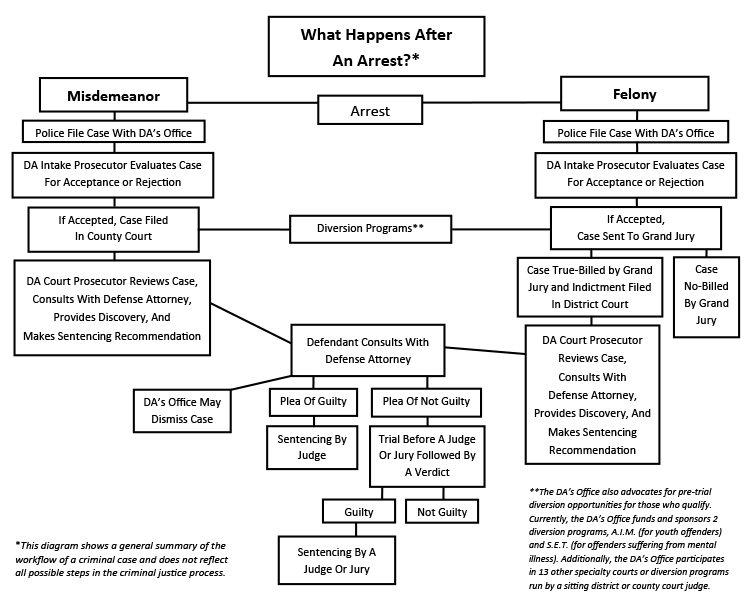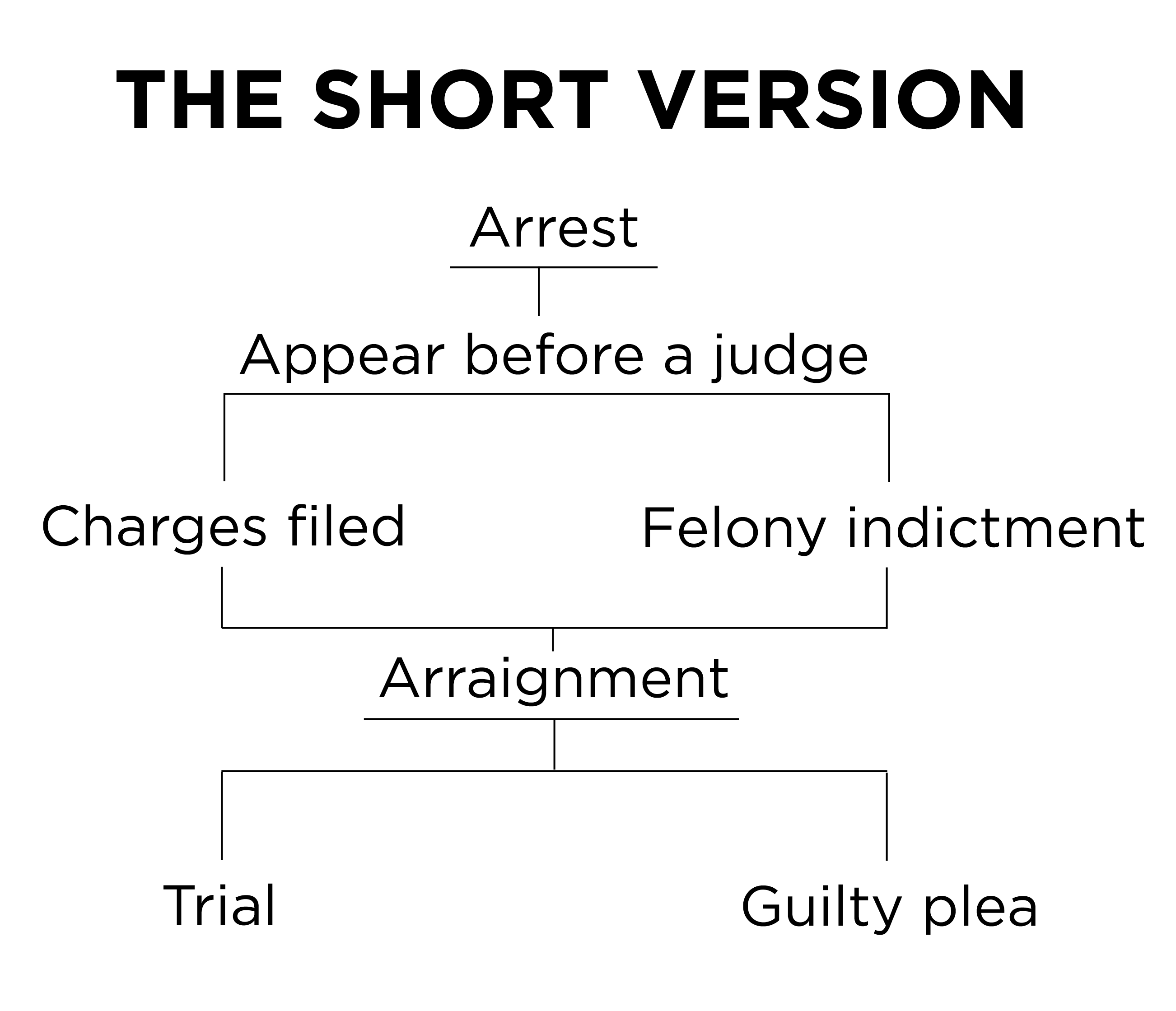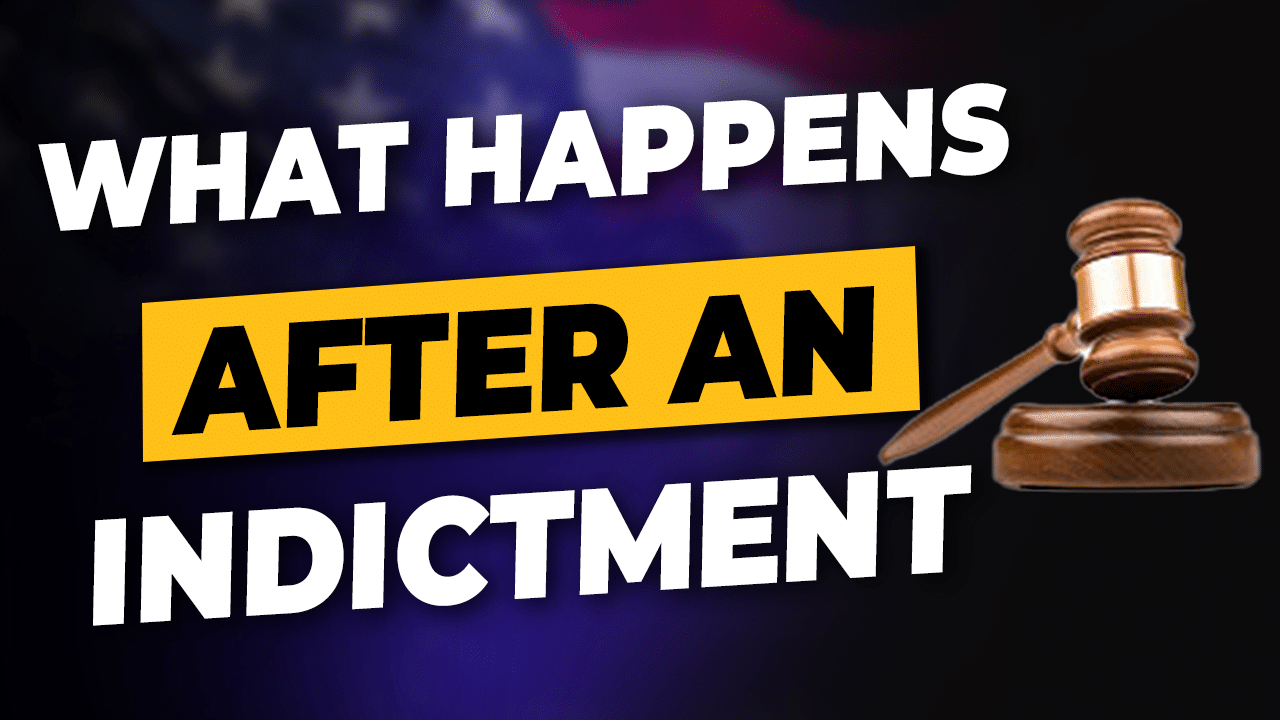After a felony indictment, the defendant is formally charged with a crime and can be arrested with a warrant. They are often held in custody pending trial.
Facing a felony indictment is a serious legal situation that can have significant consequences on an individual’s life. It marks the beginning of a complex legal process that can be daunting and overwhelming for those involved. From arrest and arraignment to trial and potential sentencing, navigating the criminal justice system post-indictment requires careful legal strategy and representation.
Understanding what happens after a felony indictment is crucial for defendants to protect their rights and mount a strong defense against the charges they are facing.
The Indictment Process
After a felony indictment, the legal process unfolds with precision. Understanding the steps involved can shed light on what to expect during this critical phase.
The Role Of The Grand Jury
Grand Jury – A panel convened to review evidence presented by prosecutors. Decides if there is enough evidence to proceed with charges.
Formal Charges And Arrest Warrants
- Charges – Once the grand jury indicts, formal charges are filed against the defendant.
- Arrest Warrant – If charges are issued, an arrest warrant may be issued for the defendant.
- Detainment – The defendant may be held in custody until the trial.

Credit: www.dallascounty.org
Post-indictment Procedures
After a felony indictment, the defendant is formally charged and may be arrested if a warrant is issued. The post-indictment stage involves potential arrest and custody pending trial. The timeline for court dates and the overall legal process may vary based on the severity of the case and the defendant’s custody status.
Once a felony indictment has been handed down, the defendant enters the post-indictment stage. During this stage, the defendant will go through several important procedures, including arraignment and plea, setting bail and pretrial release.Arraignment And Plea
Arraignment is the first court appearance the defendant makes after being indicted. At this hearing, the judge will inform the defendant of the charges against them and ask them to enter a plea. The defendant can either plead guilty, not guilty, or no contest. If the defendant pleads guilty or no contest, the case will move to sentencing. If the defendant pleads not guilty, the case will proceed to trial.Setting Bail And Pretrial Release
After arraignment, the defendant may be eligible for bail or pretrial release. Bail is a sum of money that the defendant pays to the court as a guarantee that they will appear for their trial. Pretrial release allows the defendant to be released from custody without paying bail, but they may have to comply with certain conditions, such as attending regular check-ins with a probation officer. The decision to grant bail or pretrial release is up to the judge and is based on factors such as the defendant’s criminal history and the severity of the charges against them.Overall, the post-indictment procedures can be complex and overwhelming for defendants. It is important for them to have a skilled criminal defense attorney to guide them through this process and ensure that their rights are protected.Legal Representation
After a felony indictment, legal representation is crucial to navigate the complex legal process.
Hiring A Defense Attorney
When facing a felony charge, hiring a skilled defense attorney is essential. They provide expertise and guidance throughout the case.
Public Defender Assignment
If unable to afford a lawyer, a public defender may be assigned by the court to represent the defendant.

Credit: www.dallasnews.com
Pretrial Motions And Hearings
Pretrial motions and hearings are crucial stages in the legal process following a felony indictment. These proceedings provide an opportunity for the defense to challenge the admissibility of evidence, request dismissal of charges, or seek other legal remedies.
Motion To Dismiss
One of the pretrial motions that can be filed is a motion to dismiss, which requests the court to drop the charges against the defendant. This motion is typically made on the basis of legal or procedural defects in the case, such as lack of probable cause or improper grand jury proceedings.
Discovery Process
The discovery process is another essential component of pretrial preparation. During this phase, both the prosecution and defense exchange relevant evidence and information that will be presented at trial. This includes witness statements, police reports, forensic evidence, and any other materials that may impact the case.
Plea Bargaining Dynamics
When it comes to the dynamics of plea bargaining after a felony indictment, it’s crucial to understand the process and implications. The plea bargaining dynamics play a significant role in determining the outcome of a criminal case.
Negotiating A Plea Deal
Negotiating a plea deal involves discussions between the prosecutor and the defendant’s legal counsel. Both parties aim to reach a mutually acceptable agreement to resolve the case without going to trial. During this process, the defendant may plead guilty to a lesser charge or the original charge in exchange for a more lenient sentence.
Implications Of Plea Bargaining
The implications of plea bargaining can have far-reaching effects on the defendant’s future. By accepting a plea deal, the defendant avoids the uncertainty and potential harsher consequences of a trial. However, it’s essential to carefully weigh the pros and cons of the proposed deal, considering the impact on one’s criminal record, future employment opportunities, and personal life.
Plea bargaining can expedite the resolution of a case, potentially leading to reduced caseloads for the court system and saving time and resources. On the other hand, it’s crucial for the defendant to fully comprehend the legal ramifications of accepting a plea deal, as it involves giving up certain rights, such as the right to a trial by jury.
Trial Preparation
When facing a felony indictment, trial preparation is crucial to building a solid defense. This stage involves meticulous planning and strategizing to present a compelling case in court.
Building A Defense Strategy
Developing a defense strategy is the foundation of trial preparation. It involves reviewing evidence, interviewing witnesses, and formulating a plan to counter the prosecution’s case.
Jury Selection
Selecting the right jury is a critical aspect of trial preparation. Careful consideration is given to each potential juror to ensure a fair and impartial panel is chosen.
The Trial Phase
After a felony indictment, the trial phase begins, with the defendant facing formal charges and potential arrest. The process can vary in duration, from days to months, depending on the severity of the case and the defendant’s custody status.
The trial phase is one of the most critical stages in a felony case. This is where the prosecution and defense present their arguments and evidence to a jury or judge. The trial phase consists of several parts, including opening statements, witness testimony and evidence, and closing arguments. Each of these parts is essential to the outcome of the trial and can greatly impact the defendant’s fate. Let’s take a closer look at each part in detail.Opening Statements
The trial begins with opening statements from the prosecution and defense. The prosecution goes first and presents their case, including the charges against the defendant and the evidence they plan to present. The defense then presents their opening statement, where they may challenge the prosecution’s evidence or present their own theory of the case. The opening statements set the tone for the trial and provide a roadmap for what is to come.Witness Testimony And Evidence
During the trial, witnesses are called to testify, and evidence is presented to support the prosecution or defense’s case. Witnesses can include experts, victims, and other individuals with knowledge of the case. The evidence presented can include documents, photographs, and other physical evidence. The prosecution and defense can cross-examine witnesses and challenge the validity of evidence presented. This is a critical part of the trial, as the jury or judge must weigh the evidence presented to determine the defendant’s guilt or innocence.Closing Arguments
The final part of the trial phase is the closing arguments. This is where the prosecution and defense make their final arguments to the jury or judge. The prosecution will summarize their case, highlighting the evidence presented and why they believe the defendant is guilty. The defense will then present their closing argument, challenging the prosecution’s evidence and presenting their own theory of the case. The closing arguments are the last chance for each side to convince the jury or judge of their position.In conclusion, the trial phase is a critical stage in a felony case. It consists of opening statements, witness testimony and evidence, and closing arguments. Each part is essential to the outcome of the trial, and the prosecution and defense must present their best arguments and evidence to convince the jury or judge of their position.
Credit: prisonprofessors.com
Post-trial Scenarios
After a felony indictment, the legal process continues with post-trial scenarios that determine the defendant’s fate. These scenarios include the verdict and sentencing, as well as the appeal process.
Verdict And Sentencing
Once the trial concludes, the jury deliberates and delivers a verdict, determining the defendant’s guilt or innocence. If found guilty, the judge proceeds to sentencing, considering various factors such as the nature of the crime and the defendant’s criminal history.
Appeal Process
If the defendant is dissatisfied with the verdict or believes there were legal errors during the trial, they can opt to appeal the decision. The appeal process involves presenting arguments to a higher court to review the trial proceedings and potentially overturn the verdict.
Frequently Asked Questions
How Long Can A Felony Charge Be Pending In Texas?
In Texas, a felony charge can be pending for up to three years in most cases.
What Is A Post-indictment?
A post-indictment occurs after a grand jury formally charges a defendant with a crime. The defendant can be arrested once a warrant is issued and may be held in custody pending trial.
How Long Does It Take To Get A Court Date For A Felony In Texas?
In Texas, the time to get a court date for a felony varies. For out-of-custody defendants, it can be a few days or weeks. In-custody defendants and serious cases may take months.
How Long Does It Take To Get Indicted In Texas?
In Texas, the time it takes to get indicted varies, but it generally ranges from a few weeks to a few months.
Conclusion
In the aftermath of a felony indictment, the legal process continues with arrest and possible custody pending trial. The time it takes to get a court date varies depending on the circumstances. The timeline of a criminal case in Texas may depend on the severity of the charge.
Understanding these post-indictment steps is crucial.

